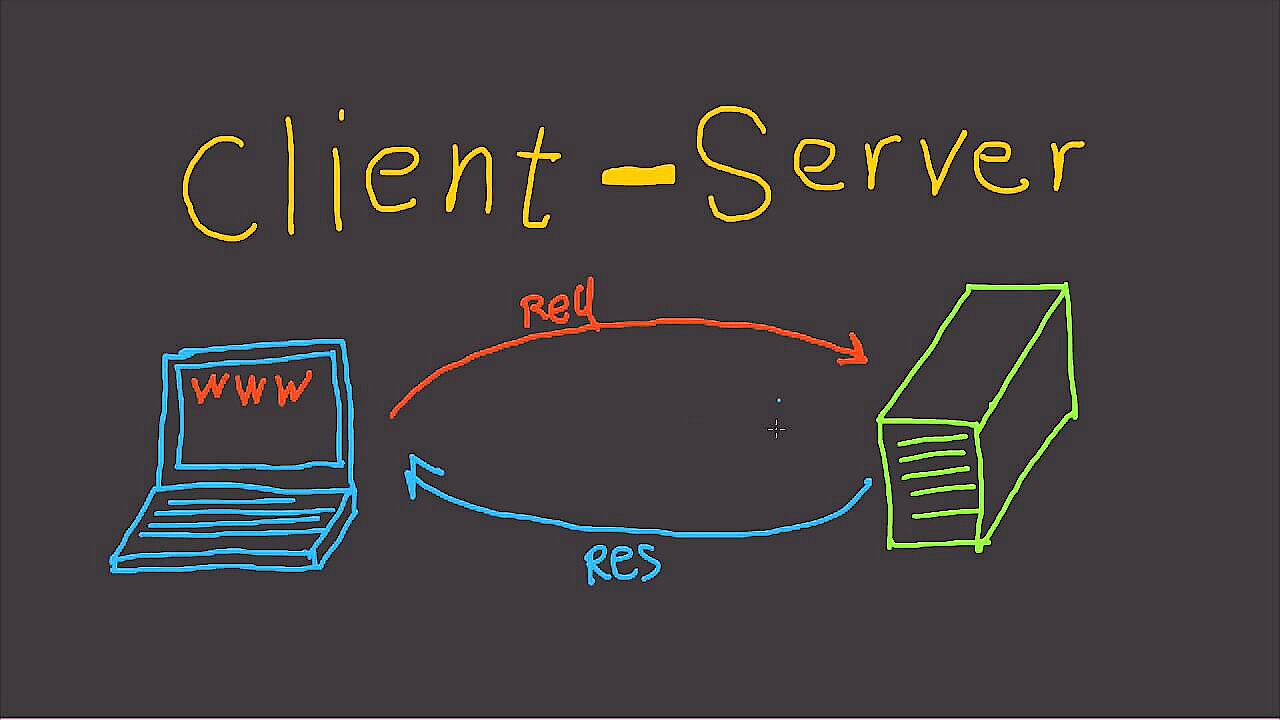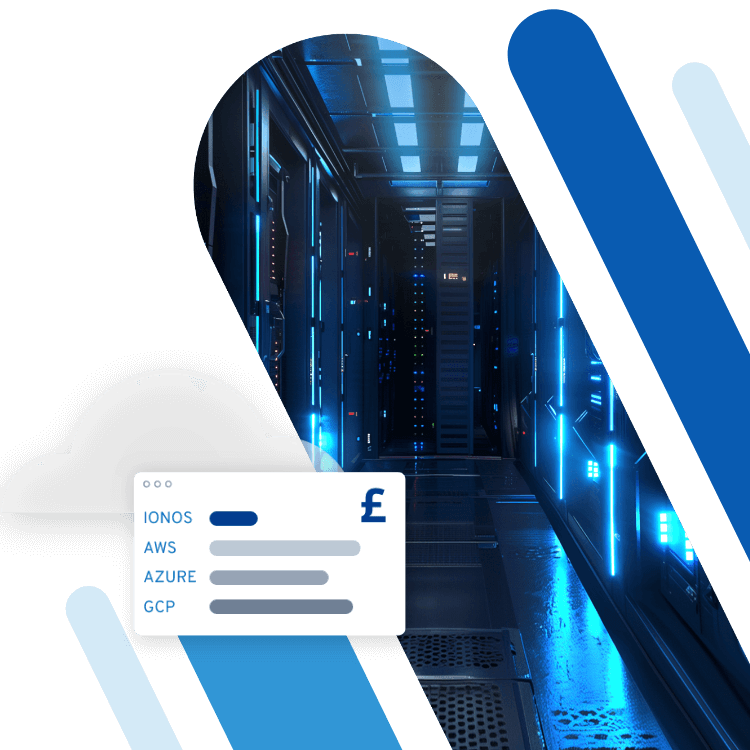What is a server?
The term ‘server’ has a double meaning in IT. It is used to describe a computer that makes resources available over a network, as well as the program that runs on this computer. So it’s necessary to have two different server definitions:
- Definition Server (hardware): a hardware-based server is a physical device connected to a computer network on which one or more software-based servers run alongside the operating system. An alternative term for a hardware-based server is host. In principle, any computer can be used as a host with server software.
- Definition Server (software): a software-based server is a program that offers a specialised service to be used by other programs (known as clients) locally or via a network. The service offered depends on the type of server software. The client-server model is the basis of communication. When it comes to exchanging data, service-specific communication protocols are used.
You want to rent a server? IONOS offers vServers, Cloud Servers & Dedicated Servers in different scales, perfectly adapted to your needs.
How do servers work?
Server services operating via computer networks are made possible thanks to the help of client server-models. This concept makes it possible to divide tasks among different computers and allow users simultaneous access. Every service provided via a network requires a server (software), which is permanently on standby. This is the only way to ensure that clients, like web browsers or e-mail programs, always have the opportunity to access the server and utilise its service when needed.
You want your own vServer? IONOS offers powerful and cost-effective VPS packages. Take advantage of the IONOS free VPS trial now and test your vServer for free for 30 days.
Types of Servers
The way that client and server communicate depends on the particular service and is determined by a specific transfer protocol. This can be best explained using examples of the main server types:
- Web server: the primary task of a web server is to store, process, and deliver websites to clients, like web browsers and search engine crawlers. Communication between server (software) and clients is carried out via the Hypertext Transfer Protocol (HTTP) or its encrypted version, HTTPS. HTML documents and the elements incorporated in them like, images, style sheets, or scripts, are transferred this way. Major web servers include the Apache HTTP server, Microsoft Internet Information Services (IIS), and Nginx.
- File server: file servers care for the central storage of data accessible for a number of different clients via a network. Companies rely on this file management to provide multiple work groups with access to the same file. File servers protect against problems arising from various local file versions by enabling automatic versioning of files and a centralised backup of all corporate data. If access to the file server comes via the internet, then transmission protocols like FTP (File Transfer Protocol), SFTP (Secure File Transfer Protocol), FTPS (FTP over SSL), or SCP (Secure Copy) are used. In local computer networks (LAN), the protocols SMB (Server Message Block) and NFS (Network File System) are utilised.
- Mail server: a mail server consists of several software modules that work together to enable e-mails to be sent, received, forwarded, and retrieved. The Simple Mail Transfer Protocol (SMTP) usually handles this. Users who wish to access a mail server need an e-mail client to collect messages from the server and deliver them to the e-mail inbox. This is carried out by IMAP (Internet Message Access Protocol) or POP (Post Office Protocol).
- Database server: a database server is a computer program that gives other programs access to one or several database systems via a network. Software solutions like this include Oracle, MySQL, Microsoft SQL Server, PostgreSQL, and DB2. Database servers support web servers by storing and delivering data.
- Game server: game servers (software) are specialised for online-based multiplayer gaming. They manage data from the online game and enable a synchronised interaction with the virtual world. The hardware for a game server can come from the data centre of a specialised provider or locally via the home network.
- Proxy server: a proxy server serves as a communication interface in computer networks. Acting as an intermediary, the proxy server accepts requests from the network and forwards them on via its own IP address. Proxies are used to filter communication, control bandwidths, increase availability by load balancing, or to cache data. A proxy server also offers increased anonymity because the client’s IP address is hidden behind the proxy.
- DNS server: DNS, or name servers, are responsible for name resolution on a network. This is central to the World Wide Web, because a DNS server will translate a human-friendly host name (like www.ionos.com) into the corresponding IP address. For further information on DNS servers and the domain name system, please refer to our article on DNS servers.
- Unlimited traffic and up to 1 Gbit/s bandwidth
- Fast SSD NVMe storage
- Free Plesk Web Host Edition

In theory, one physical machine can host a number of different server types. But the common standard is that every server has its own computer or is even spread across several computers. This ensures that the hardware isn’t overused and that it doesn’t affect the performance of other services.
 To display this video, third-party cookies are required. You can access and change your cookie settings here.
To display this video, third-party cookies are required. You can access and change your cookie settings here. What is server hosting?
While it can indeed be worthwhile for large companies to acquire their own server hardware, the self-employed and individuals who want to implement their own server project usually fall back to leased sources. Specialist providers offer servers to rent in various hosting models, which carry the benefit that the user doesn’t have to worry about the operation of the physical machine. Products range from dedicated servers, with hardware components that are exclusively reserved for one user, to shared hosting packages, where multiple virtual customer servers are hosted on a common hardware base.
Thanks to free starting credit, you can test the IONOS cloud server for 1 month free of charge (or until the credit is used up) and experience the perfect combination of performance and security!


